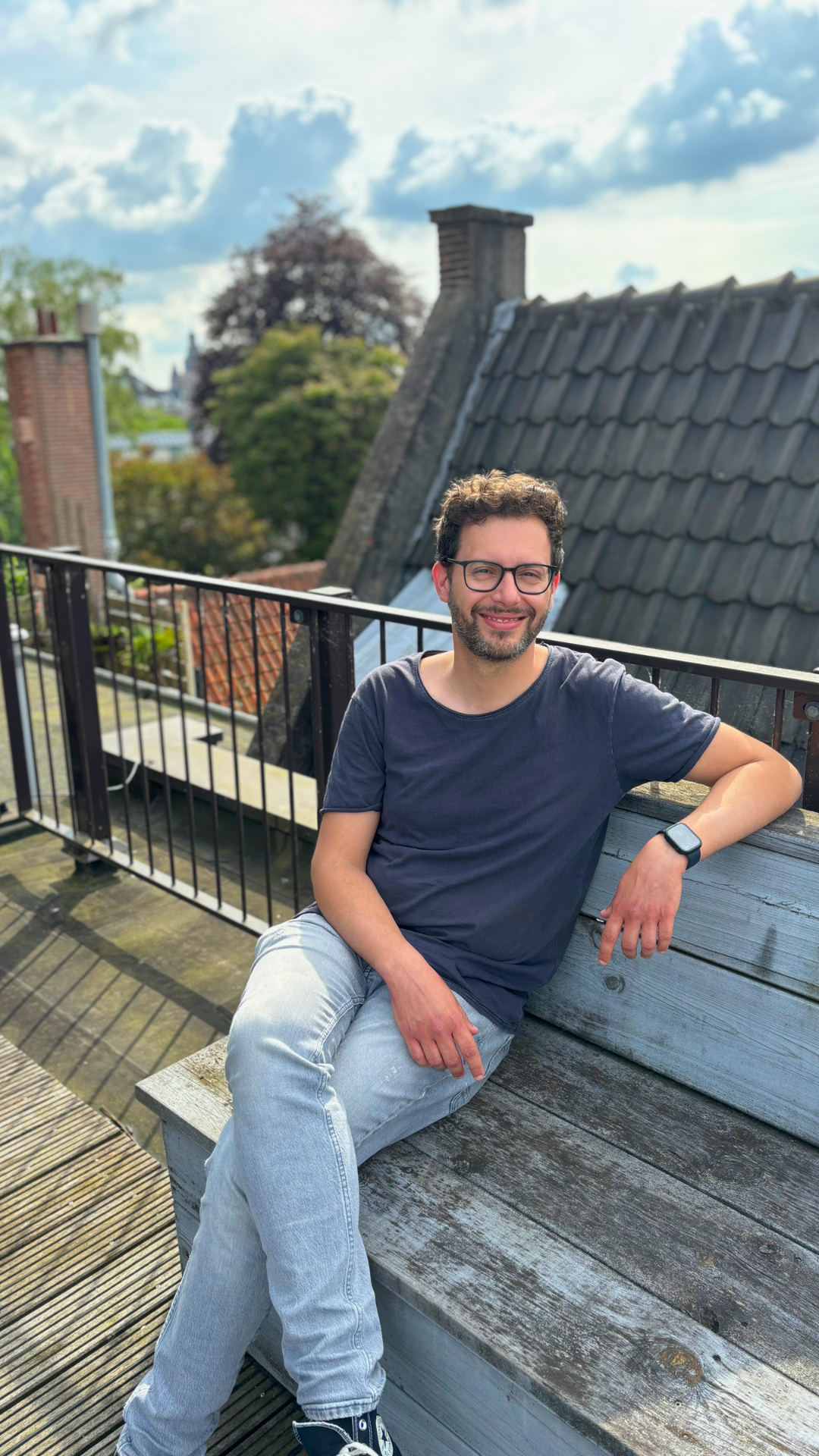At Loop we’re not just sporadically using AI in our daily work lives, we’re investing in it heavily. Our dedicated AI team creates custom GPTs, trains Loopers in using AI and defines what work can be replaced by AI. The talent acquisition team is using AI full force, so we talked with Talent Acquisition Business Partner Leandro about the pros and cons. Is AI taking over his job?

What can AI do for talent acquisition?
I’m a huge Star Trek and Star Wars fan, so I’ve been excited about AI from the beginning. As a recruiter I use several AI tools daily. The first – Scorecraft – is a custom GPT which we built here at Loop. It analyzes the transcripts from calls with candidates and comes up with a standardized scorecard. This scorecard gives insights into whether a candidate said things that match the job description and align with our values. It even evaluates how biased the interviewer was during the call.
It helps me to be less biased in how I evaluate candidates. AI looks for evidence the candidate can actually do the job. The fact that the tool takes notes during the interview gives me the opportunity to focus on connecting on a different level with the candidate. This is a massive advantage that AI offers talent acquisition, and why I’m not concerned my job will be taken over anytime soon. In fact, my job is getting better because of it, since I’m outsourcing tasks that get in the way of what matters most: the human connection.
Another custom GPT we’ve built is our job description generator. Does it spit out ready-to-go job descriptions? No. But it does help in creating a consistent structure and getting the relevant information in there quickly, so we only need to fine-tune the actual text.
Saving time to invest in a better candidate experience
We also use Mojohire, which is a very cool platform that helps us with two things. First, it enables us to rediscover candidates in our Applicant Tracking System (ATS). These candidates have applied before but for some reason weren’t the right hire at the time. Mojohire looks to match open job descriptions with the profiles of former candidates. This saves so much time, since we don’t have to manually search for those profiles, but also because we’ve already talked that entire pool of candidates before.
Mojohire also scans incoming resumes to see if there’s a job fit. Here at Loop we get tons of applications, which take time to go through. Using Mojohire to sift through resumes enables us to get back to candidates quicker and spend our time on candidates that show true Loop potential. Everybody wins.
There’s always a risk in adopting new tools
AI helps us a lot. It helps us make decisions quicker and more efficiently. But it’s still just a tool. As with all tools, there are risks you should be aware of when adopting them. It’s important to not fully rely on AI, to always think for yourself, and to experiment. Use small test groups before rolling out a tool to the whole company.
Our job description generator, for instance, took a lot of iterations before we felt it was ready to be used by the whole Talent Acquisition team. And we still see it as a minimum viable product which we have to keep testing and improving. See it for what it is: not a perfect solution, but something that helps us move forward, faster.
I like to think of AI is an intern. A smart intern, but still one you need to train and guide and correct at times. It will fail a lot of times, but when it wins, it’s a great win.
And you know what, humans also make mistakes. Is there a risk that you hire the wrong person when you use AI in the hiring process? For sure. But the same risk exists when you don’t use it. All you can do is test, and then consider what the data tells you: is it getting better with AI? The answer to that can be different for every company, team or even recruiter.
Having a dedicated AI team helps, a lot
I work closely with Luc and Emma from our AI team. I have a ton of crazy ideas and they are the ones that tell me if what I want is feasible. If it is, then they figure out how to do it technically, which suppliers to reach out to, how to connect internal to external tools, what success looks like and so on. That team is really focused on the business case of using AI. They question if it really helps Loop move forward or if it’s just another one of my crazy ideas.
We're currently mapping out the entire talent acquisition flow, evaluating what parts of that flow can be automated or supported by AI, and what needs to stay a manual task. One of the challenges is automating candidate feedback. Every candidate should be able to learn from their interview process, right? At the scale we are growing right now, it’s becoming increasingly harder to give every candidate a call with personalized feedback. Which is why – together with Luc and Emma – we’re researching if we can (partially) automate sending feedback. We’re not yet sure if it’s possible, and we might fail. But if we succeed, that would be a huge success. Not only for Loop, but for the whole industry, as that would enable candidates to get customized feedback every time they enter a recruitment process.
Don’t be afraid to explore how AI can help you
When you’re ready to incorporate AI in your work, it helps to explore the world of Large Language Models. Don’t just stick to the well-known ChatGPT. There are a lot of different models fit for different use cases. From Gemini to Claude or even Copilot, just play around with it to discover what works best for you.
And learn to understand how prompts work. The input you give AI is key for the outcome. There are many (free) courses, YouTube videos and even TikTok influencers who teach you how to prompt effectively.
Finally, be aware of the risks, especially when it comes to privacy and safety. For instance, don’t put sensitive data into a free GPT account. Everything you put into a free account goes straight into OpenAI’s database and then they basically own it. So be mindful of the data you put into it, especially from a professional point of view.
Interested in injecting your career with AI on a serious scale? Check out our open vacancies.

The Founders Story
Earplugs, suck! There .... we said it 😜 At least, that's what our co-founders Dimitri O and Maarten Bodewes learned w...

The reality of a workaway
Traveling is a big part of who we are at Loop. But we also need to work. And then it hit us, why not combine the two?

Tips for giving tips: How we build a constructive feedback culture
When it comes to actually giving that feedback to others, we tend to get a bit nervous. We love giving kudos, high f...












